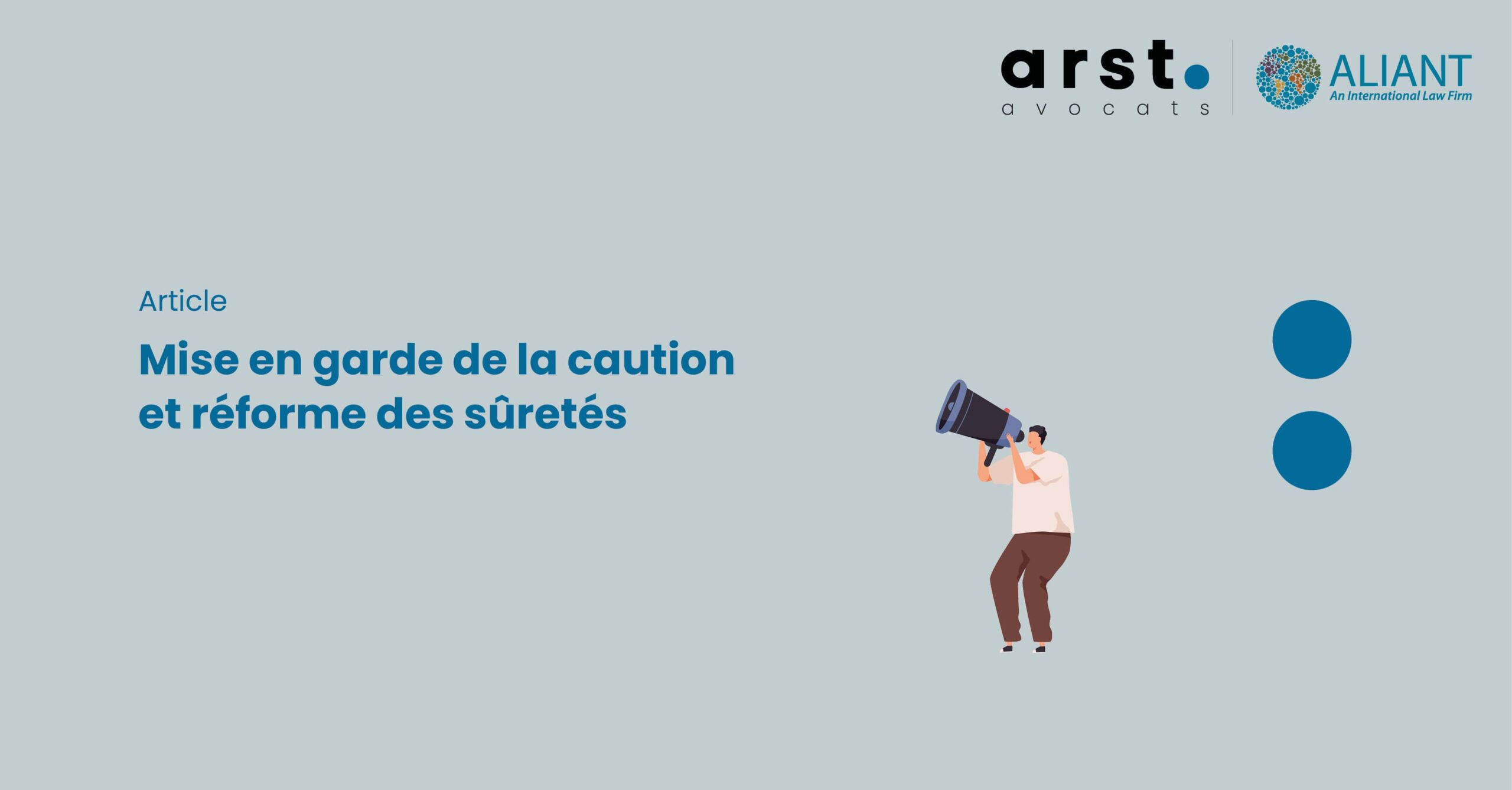
Warning of the surety and security reform
Court of Appeal of Grenoble, 1st ch., January 18, 2022, n°20/00621
Applying the law prior to the reform of security law resulting from order no. -vis a couple of borrowers who are uninformed with regard to their financial capacities and the risk of excessive indebtedness resulting from the granting of the loan.
In this case, one of the borrowers had also committed as a surety for the benefit of his SCI, so that the accumulation of commitments exceeded the financial capacities of the spouses.
The bank was ordered to pay the borrowers damages on the basis of the loss of opportunity not to take out this loan, assessed in this case at 50%.
The solution will be logically different in the future due to the entry into force since January 1 , 2022 of the reform resulting from ordinance number 2021-1192 of September 15, 2021 which, without upsetting the system, operates an overhaul overview of the provisions of the Civil Code relating to suretyship.
While the essential elements of the legal regime of suretyship are retained, the text innovates on certain points and in particular makes certain changes with regard to the sanction applicable when the professional creditor fails in his duty to warn or in the event of disproportionate suretyship.
The obligation to warn the natural person guarantor
With regard to sureties concluded on or after January 1 , 2022, the order of September 15, 2019 eliminated the distinction between "informed" and "lay" sureties in order to reduce the risk of litigation: the duty to warn weighing on the professional creditor now benefits all natural person sureties.
Under the terms of the new article 2299, par. 1 Civil Code, the professional creditor is required to warn the natural person guarantor of the insufficiency of the principal debtor's financial capacities.
With regard to the sanction, the creditor who failed, before this reform, in his duty to warn engaged his contractual liability with regard to the surety for having made him lose the chance not to commit. Compensation between the sums due to the creditor and the damages to which he was condemned could thus be ordered.
Since January 1 , 2022, the ordinance has replaced this liability action with a forfeiture: the surety will thus be released from his commitment to the extent of his damage, it being specified that this consists of a loss of chance not to to commit.
With this forfeiture mechanism, the creditor is not condemned to pay damages intended to compensate for the surety's debt. From now on, the partial extinction of the surety's commitment is direct.
Proportionality of the bond
The ordinance of September 15, 2021 repealed the texts of the Consumer Code prohibiting a professional creditor from availing himself of the guarantee manifestly disproportionate to his assets when it was concluded, to replace them with the new article 2300 in the Civil Code.
This new article enshrines the requirement of proportionality of the suretyship given by a natural person with regard to a professional creditor.
When, at the time when it was given, such a suretyship was “manifestly disproportionate to the income and assets of the surety” , it will be automatically reduced to the amount to which it could actually commit.
The new sanction is more consistent with the purpose of the rule: a total discharge of the surety, which is highly punitive for the creditor, is substituted by a reduction in its commitment, which perfectly fulfills the objective of preventing the guarantor from over-indebtedness .
In this respect, it can be regretted that the rule of return to better fortune has not been retained, according to which an initially disproportionate surety escaped any sanction if, due to the evolution of the financial situation of the surety, it was no longer so when it was implemented.
From now on, any initial manifest disproportion of the surety will condemn it irremediably to a reduction, even if the commitment would have become bearable for the surety.

Fanny Hurreau
Partner
Lawyer at the Hauts-de-Seine bar. Fanny joined the firm freshly graduated and became a partner in less than 10 years. She appreciates her human values and likes to subtly defend the interests of her clients.